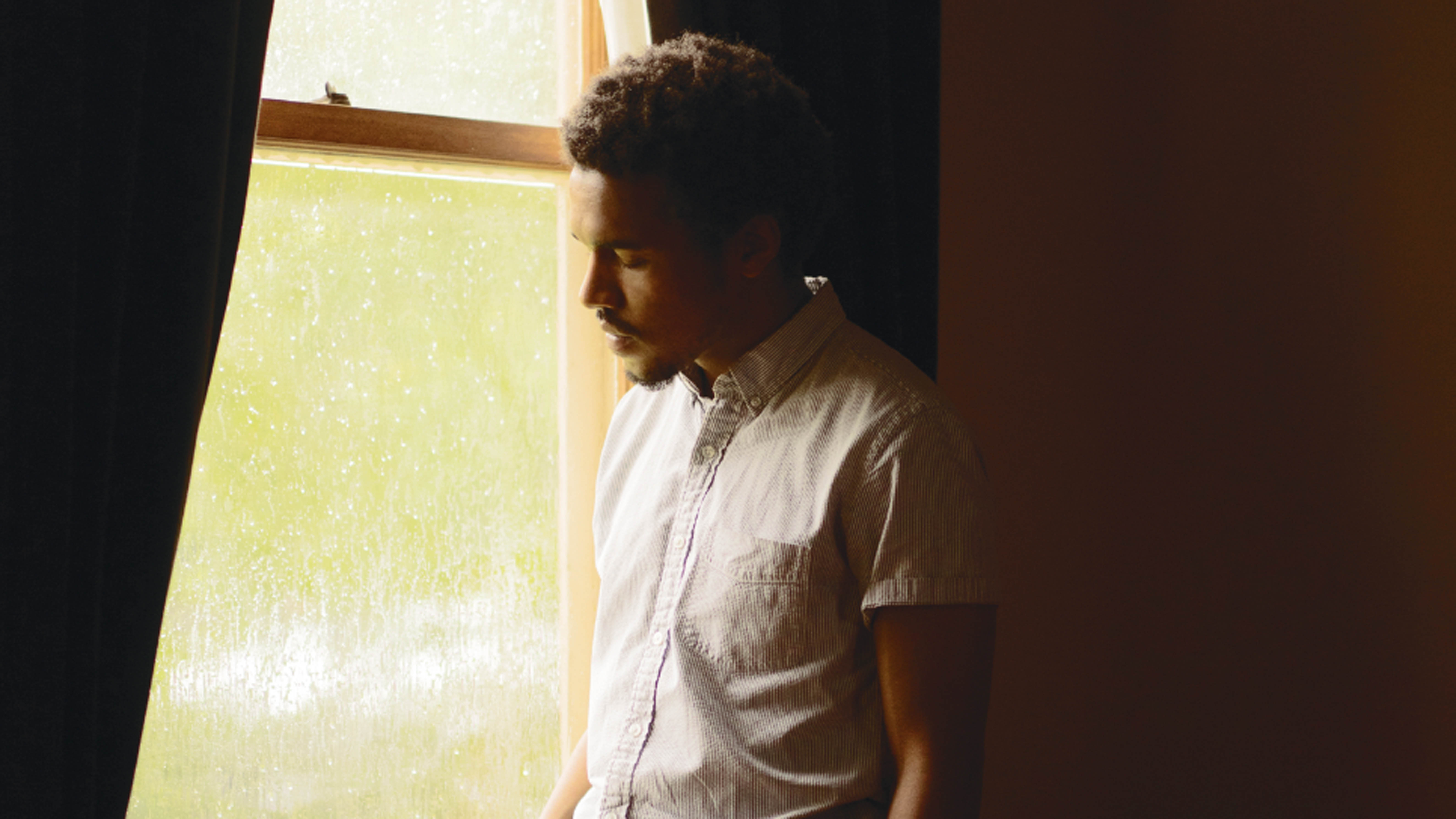BACKSTORY: A young music journalist turns legit with guitar in hand
FROM: Raised in Tampa, made his name in New Orleans, and now living in Los Angeles
YOU MIGHT KNOW HIM FROM: His self-titled debut or his spots opening for Jack White and Courtney Barnett
NOW: Releasing his sophomore album, Witness, on ATO
The title track from Benjamin Booker’s new album Witness is a clarion call. “Right now we could use a little pick-me-up / Seems like the whole damn nation’s trying to take us down,” he sings. “They say you’re dangerous, cancerous, not to trust / Now everybody that’s brown can get the fuck on the ground.”
It’s a not-at-all-veiled analysis of the state of our union, both sensitive and outraged. Booker’s raspy voice is filled with hope but tinged with resignation, and it’s lifted out of the darkness by the legendary bellow of Mavis Staples, who duets on the track.
It would’ve been hard to imagine hearing a song quite like “Witness” from Booker in 2014, when his eponymous debut first thrust him into the public eye. Back then he was just making a name for himself as a gravelly voiced blues practitioner with a penchant for gritty punk. “Slow Coming,” from Benjamin Booker, expressed his general fatigue and frustration with modern society, proving that he had the chops for politically charged songwriting, though it might have lacked the sense of urgency needed to translate it into action.
“What I felt was the temporary peace that can come from looking away.”
But for both Booker and the United States, 2014 seems like eons ago: before Freddie Gray, before Sandra Bland, before President Trump—all of them catalysts that brought larger social issues to the forefront of Booker’s mind. As he puts it, he’s asking the questions that not even his hero James Baldwin could fully answer just over thirty years ago when faced with similar spectacles of injustice near the end of his life: “Am I going to be a witness?” Booker asks. “And in today’s world, is that enough?”
The album’s title track was written in a matter of minutes and was largely inspired by a trip to Mexico City in March of 2016. Feeling overwhelmed and uninspired by the state of the nation, he did what many people wished they could have done this last year—he left the US, flocking like a monarch butterfly to what he thought would be a more inviting climate. In a statement, Booker wrote, “I was almost entirely cut off from my home. Free from the news. Free from politics. Free from friends. What I felt was the temporary peace that can come from looking away.”
It wasn’t until he got caught in a physical altercation outside a bar in Condesa that he realized the discrimination and chaos he was running from had followed him. “It was just one of those moments where you realize, ‘I gotta take care of my house, my home, where I live,’” he says. “You know what I mean? The same thing is happening everywhere.”
Not that the last three years haven’t given him plenty of means for escape. Booker went from making $800 a month working for AmeriCorps to playing Letterman in a matter of months after the release of his album. “I didn’t start playing music until right before all of that happened,” he says. “So I didn’t even know how to set up my guitar amp.”
With one world tour under his belt, the former aspiring music journalist is more self-assured than ever. “It was pretty difficult at the beginning,” he says. “But I think that like any job, over time it becomes a lot easier, and maybe halfway into [the touring cycle] it started to feel comfortable.”
In an effort to avoid complacency—or worse, be pigeonholed like many a musician of color before him—Booker sought to expand his musical repertoire for Witness. “[I was] trying to break away from the things that I started with on the first record,” he says. “My taste from the last album has completely changed. I think I was very much into blues music and garage rock…[but] I’ve moved away to ’70s Afro-psych music. [Bands like] Sly & the Family Stone [were] a huge influence. I’m listening to more hip-hop, and I’m more interested in rhythm and how the other instruments work in and out of that. I’m allowing for more space this time.”
With the help of producer Sam Cohen (who’s backed everyone from Kevin Morby to Bob Weir as a session player), Booker was able to make Witness into a taut, polished product that’s more of a distant cousin to his reckless debut than a direct predecessor. “Going into this album, I just wanted to take the songs as far as they could go,” he says. “And I think that getting there, and working with new musicians and a new producer and everything, I really had to put my ego aside.”
The maturation that Booker underwent as a musician and as a person prepared him for the task of putting out an album like Witness, which he says is “about the things that I’d never wanted to talk about.” Perhaps that’s what it means to be a witness in 2017: to stare unflinchingly at that which terrifies us most and confront it head on, and to recognize all the flaws in the world around us and within ourselves. Sometimes all it takes is a voice like Booker’s to speak that unpleasant truth. FL
This article appears in FLOOD 6. You can download or purchase the magazine here.









